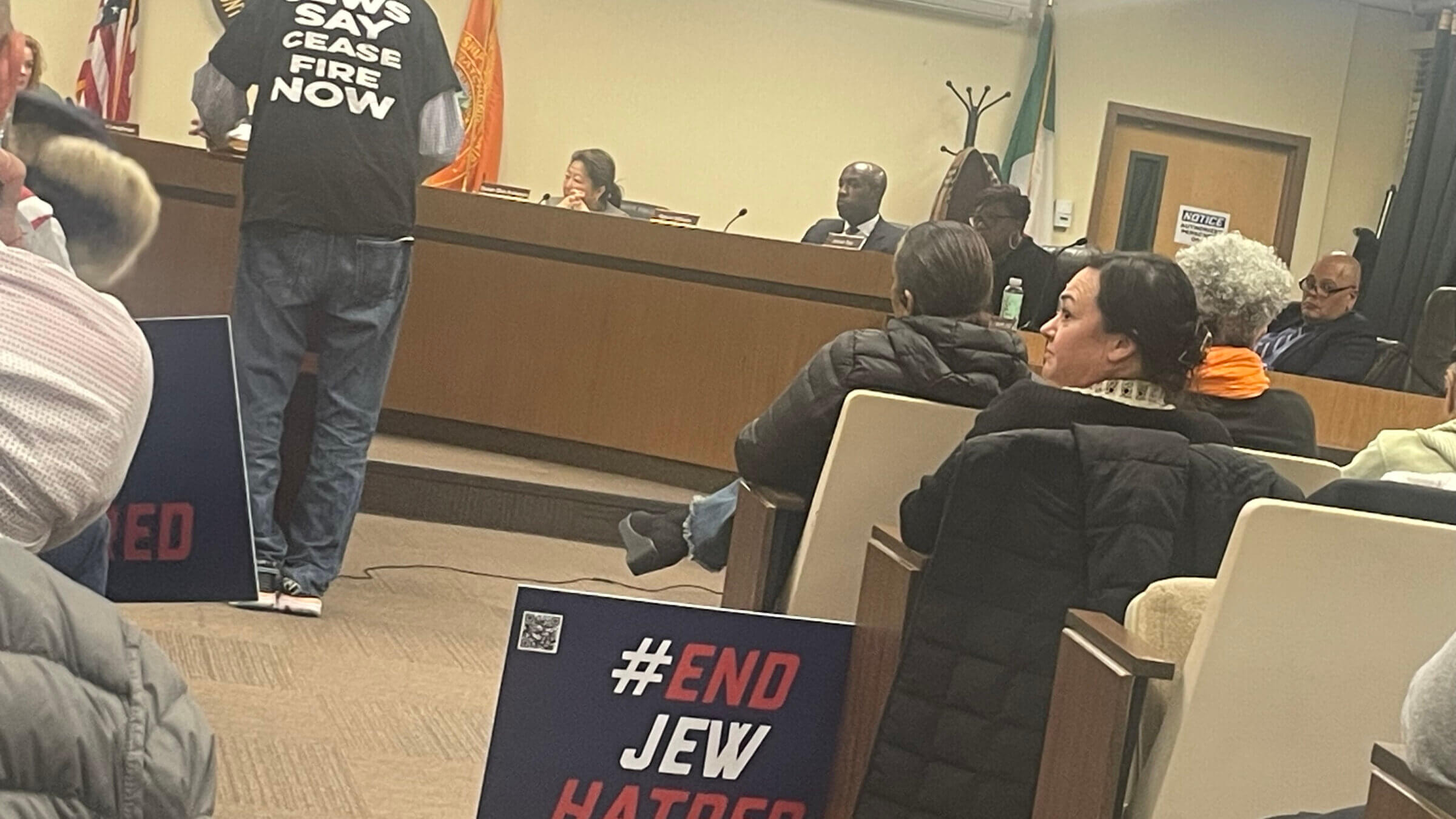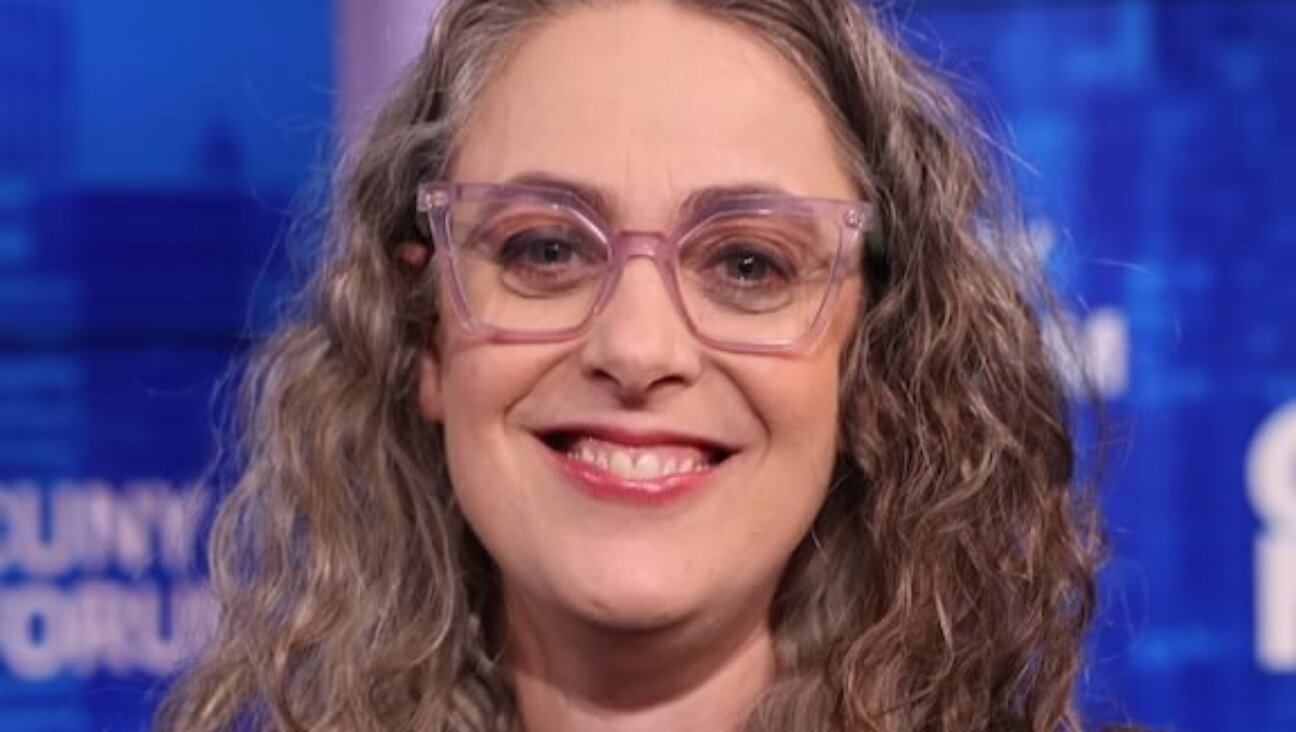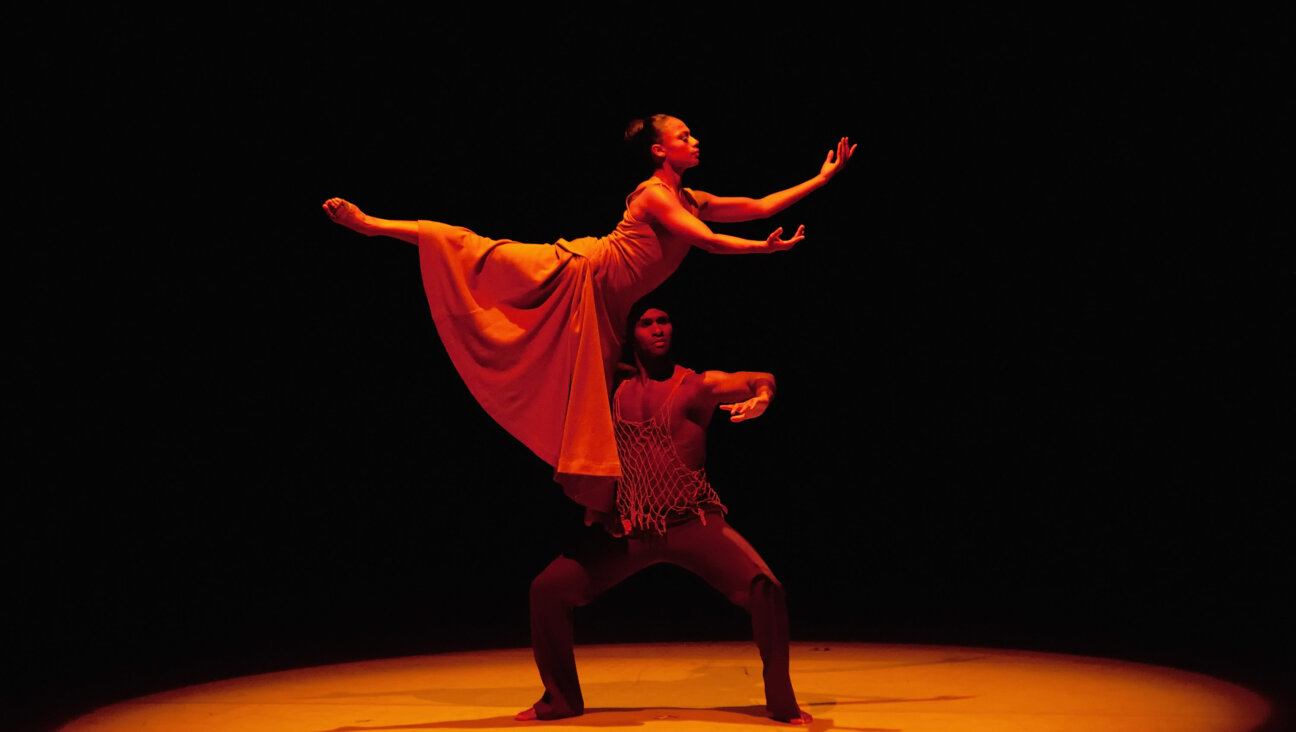The latest casualty of the Israel-Hamas war is a volunteer police chaplain program in New Jersey
When Jews complained that an imam’s anti-Israel posts included antisemitic tropes, the town disbanded the program rather than deal with the problem

At Tuesday’s town council meeting, Jews and other people on all sides of the Israeli-Palestinian conflict spoke out about the fate of a volunteer police chaplain program. Photo by Jodi Rudoren
This is an adaptation of our editor-in-chief’s weekly newsletter. Sign up to get it delivered to your inbox on Friday afternoons.
Count among the latest casualties of the Israel-Hamas war an all-volunteer police chaplain program in Montclair, New Jersey.
This tidbit of collateral damage some 5,680 miles from the front is trivial, of course, in the face of the death, destruction, displacement and disease across Gaza. the horrible suffering of Israeli hostages and their families, the deterioration of Israel’s psyche, economy and standing in the world.
But it is nonetheless emblematic of the ways this war has demolished civil discourse as activists shout past each other — and how supposed community leaders have too often thrown up their hands in despair. And it’s happening in my hometown, a New York suburb that touts its diversity and tolerance but, like so many communities and institutions, has proven unable to deploy reason to resolve even the tiniest of conflicts if they have any connection to the Israeli-Palestinian conflict.
The saga began in September, when a local imam, Kevin Dawud Amin, said at a Township Council meeting that “certain groups have more pull than others in the media.” Some folks freaked out about this tapping into the old antisemitic canard re: Jews controlling the media, and complained to Montclair’s civil rights commission. They noted that Amin was not just the leader of a local mosque but, as a volunteer police chaplain, also a quasi-public official.
They also pointed out that his social media feeds were filled with anti-Israel screeds — comparing Zionism to the Klan, for example — and some posts that included antisemitic tropes, like decorating a picture of Alan Dershowitz with devil’s horns. A local rabbi had tried meeting with Amin to explain why such things were problematic, but he would not back down.
Instead, over the ensuing weeks, Amin posted items referring to New York and New Jersey Jews as “settlers” and celebrating the violent attacks on Israeli soccer fans in Amsterdam.
There were more heated hearings of the civil rights commission and of the town council, where the imam and his critics made more impassioned speeches. The commission eventually recommended that the council institute a social media policy for volunteers like Amin, who it said had made “multiple and accelerating antisemitic” posts, and that the chaplains undergo anti-bias training. Instead, the town manager punted, disbanding the police chaplain program altogether and telling the Montclair Local that “the conflicts between freedom of speech and freedom of religion are sometimes too difficult for anyone to handle.”
And that’s how I ended up wasting three hours of my Tuesday night at the Municipal Building, where everybody’s deeply felt pain and outrage over things happening in the Middle East were trained upon a local imam with 1,392 followers on Twitter.
“Speaking out against genocide in Gaza is not antisemitic!” one pro-Palestinian activist fairly shouted into the microphone.
“To make this a free speech issue is dishonest in the extreme!” declared a Jewish resident of a town about 10 miles away.
The auditorium was full. There were people wearing kaffiyehs and people wearing hostage dog tags. Some held signs saying “Criticizing Israel is Not Antisemitic” and others, “End Jew Hatred.” They traipsed to the microphone one by one, sandwiched between speeches on more typical Town Council topics like parking and a new animal shelter policy preventing the transfer of abandoned pets from out of state.
One gadfly hissed about “these people,” causing catcalls of “You mean Jews!” from the crowd. Another speaker invoked “Aunt Jemima” and “Uncle Tom” in a clumsy effort to suggest parallel anti-Black tropes, which brought hisses from the cheap seats. Every sentence seemed to end with an exclamation point.
“What we’re seeing is a lynching of the imam!”
“The civil rights commission has disgraced itself!”
“We are not here to talk about Palestine!”
“This is a scary time for Jews!”
“The golden days of Montclair may be coming to an end!”
The sad irony was that both sides seemed to agree the police chaplain program should stick around.
“A beloved program disappeared,” Rabbi Marc Katz of Temple Ner Tamid, where I’m an active member, lamented in his three-minute remarks. “And the Jewish community was sent a message that had we not spoken out, had we not come to the town for help, had we not made trouble, things would have remained peaceful, and the chaplaincy would have remained intact.”
During his turn at the microphone, Mousa Naji of the Council on Islamic Relations called the decision “not only unjust, but a profound mistake that disservices this vibrant community and creates a sense of intimidation.”
“I believe that God loves law enforcement officers.”Pastor Ron Gonzalez
Montclair, a town of 40,000, established its police chaplaincy via ordinance in 2017, joining hundreds of communities nationwide with similar programs. Clergy volunteers go through a couple of days of training and then are on call to join officers at crime scenes, accompany them when informing family members about a death, or counsel them through a challenging case.
The police “face so many traumatic things on a daily basis, more in one week than we’ll see in a lifetime — even in Montclair,” explained Pastor Ron Gonzalez of Christ Church, who helped start the program and has been its heart and soul. “I believe that God loves law enforcement officers — I’m not saying more than anyone else, but He knows they’re doing God’s work.”
In a relatively sleepy suburb like Montclair, police chaplains are sometimes called a few times a month — and sometimes, months go by without a call. There have been between eight and a dozen volunteers on the roster at a time, but Gonzalez has been a constant.
He recalled counseling one off-duty officer who was in a car accident that killed a pedestrian: “I just did a lot of listening.” He remembered responding to the scene of a suicide, and to the accidental death of an 11-year-old child. Then there was a 90-something matriarch who died while in hospice.
“That was a little over a year ago,” Gonzalez told me. “I went to her home. I was there and stayed with her family for a while. The next think I know, they asked me if I would eulogize their mom.
“Just last week,” he added, “I got a Christmas card thanking me for serving them.”
Imam Amin, who told me he’d lived in Montclair for 50 years, was sworn in as a police chaplain in September 2023. He said he’d only been on one call, and couldn’t remember what it was about: “Thank God, nothing is ever happening in this town.”
We spoke for a frustrating 15 minutes before the council meeting was in full swing. He was defiant, refusing to acknowledge that there was anything wrong with putting horns on Jews or implying we control the media.
He pointed out that when someone threw a Molotov cocktail at Ner Tamid a couple of years ago, he was among the allies who showed up, just as he’d done at the local Reconstructionist synagogue after the Tree of Life massacre in 2018. He also said that since he got most of his anti-Zionist material from Jewish Voice for Peace, IfNotNow and the website Mondoweiss — whose founder is Jewish — he was on safe ground.
“People have to know the Jewish community is not a monolith,” Amin said. “The religion that I practice is sufficient for me not to commit bias or hate against anyone.”
I asked him several times if he had any regrets about anything he’d said or done during this extended kerfuffle. Nope. I tried suggesting, several times, that when it comes to antisemitism, maybe he should give berth to Jewish colleagues to define it — just as I would give him, as a Black man, more credence in discerning racism. He wasn’t having it.
“This is what I see: All Jewish people have this magic judgment that they can know when something is antisemitic,” Amin said derisively. “I’m an American citizen; I don’t need to have a rabbi tell me that I’m amplifying antisemitism.”
Maybe Montclair doesn’t need a police chaplain who is so hard-headed. But it does need a town council and town manager who are not so easily cowed.
The solution to this crisis is just not that hard. Serving even as a volunteer for a public agency is a privilege, so it’s not a problem to have it come with some social media guidelines preventing hateful posts. A little anti-bias training that includes Islamophobia as well as antisemitism could help. And when a bunch of rabbis or other community leaders say you’ve hurt or offended their people, try apologizing.
If only a deal to end the war were as simple.
















